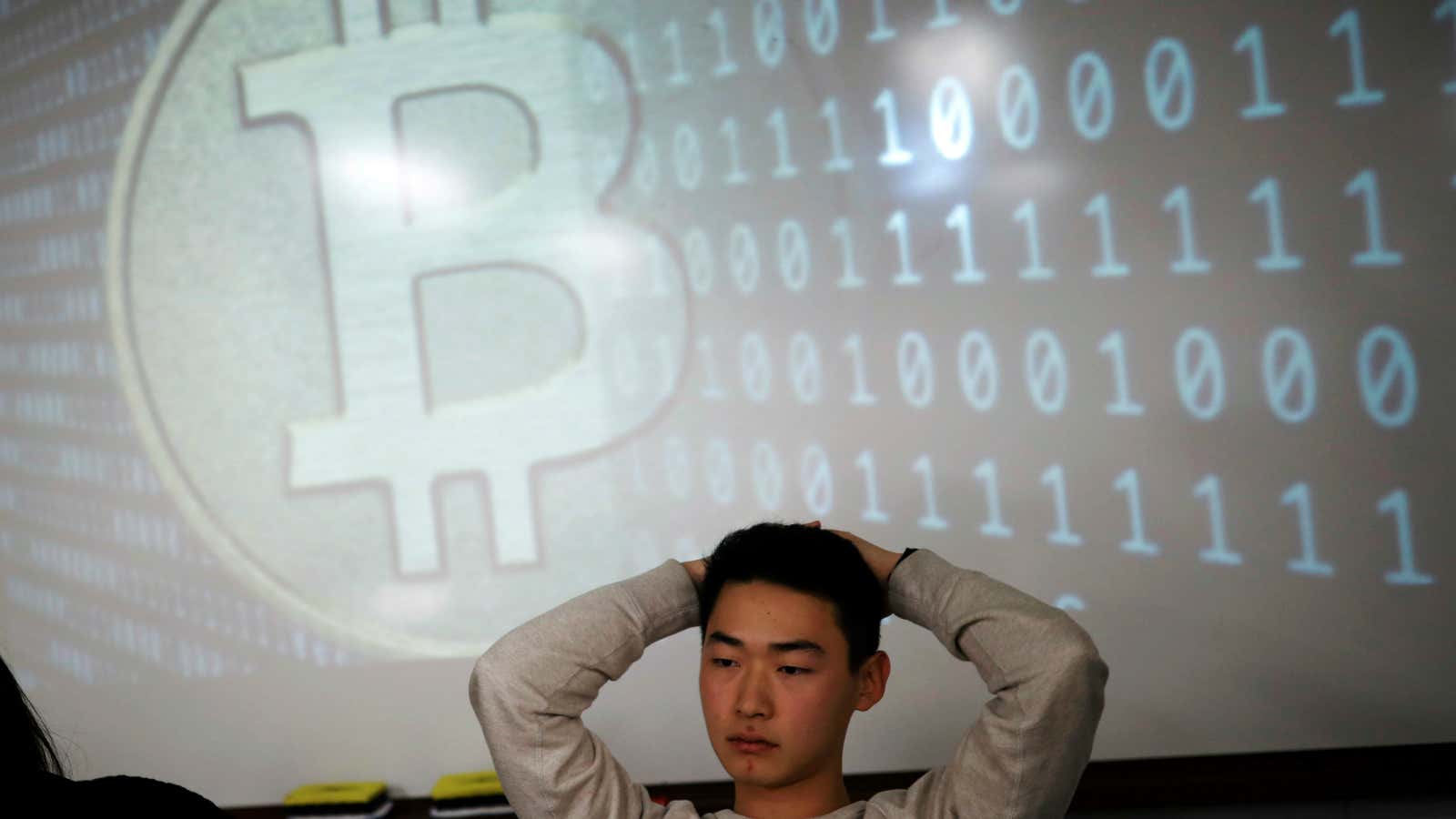The “Kimchi premium” is a term cryptocurrency investors use to describe the delicious spread in prices between foreign exchanges and the once-superheated South Korean market. But following a government crackdown, the spread has turned so unpalatable that the country’s cryptocurrency exchanges have a new plan: get the hell out.
Coinone, one of South Korea’s biggest exchanges, told Quartz earlier this month that it’s working on expanding elsewhere in Asia by next year.
“Our major target market is the southeast Asian region, including Singapore and Hong Kong,” Wonsuk Wayne Lee, a business developer at Coinone, said in an interview in Seoul, where the exchange is headquartered. “Basically we are trying to… aggregate all the liquidity, and we are going to form an umbrella, which is going to be another exchange.”
The Korean exchange, which already operates in Indonesia, is in advanced talks with partners in at least two countries, and will be looking to form between three and four ventures where it will hold the majority stake. The umbrella exchange could be set up in Malta, an aspiring crypto hub.
Coinone isn’t the only one.
At least two other major Korean exchanges—including Bithumb and Upbit—have announced plans to set up shop in Thailand and Singapore, respectively. The trigger is the sharp slowdown in retail crypto trading after the government stepped in earlier this year to cool the market with new “know your customer “ (KYC) regulations and anti-money laundering rules.
Starting in late 2017, Korean investors flooded the zone, looking to cash in as bitcoin prices hit all-time highs. The resulting premium in Korean cryptocurrency prices soared to more than 50% above than the global average.
“The public image that the government is trying to formulate is that exchanges in Korea are thugs,” an exchange official said, requesting anonymity. “I wish I could tell you, ‘In this area we are being restricted like that.’ But it’s not like that because there is no regulation.”
Exchanges, in particular, are also unhappy for being dropped from the Korean government’s regulations that govern certain small firms as “venture enterprises,” which makes them eligible for favorable taxation benefits, among other things.
Southeast Asian crypto markets may not be a free-for-all, but Korean exchanges like Coinone are convinced that they can’t be worse than what’s going on at home.
A version of this post first appeared in Private Key, Quartz’s premium newsletter about the chaotic world of crypto. Sign up for a free two-week trial here, and enter code “privatekey20off” for 20% off your membership.
